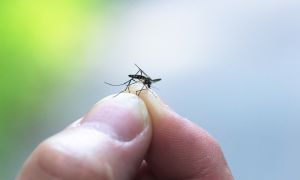For children and adults, over-the-counter (OTC) pain relievers, decongestants and saline nasal sprays may help relieve some symptoms of viral infections. Remember, always use over-the-counter products as directed. Many over-the-counter products are not recommended for children younger than certain ages. Over-the-counter medicines may help relieve symptoms such as runny nose, congestion, fever and aches, but they do not shorten the length of time you or your child is sick.
Continue Learning about Viral Infections
Important: This content reflects information from various individuals and organizations and may offer alternative or opposing points of view. It should not be used for medical advice, diagnosis or treatment. As always, you should consult with your healthcare provider about your specific health needs.



